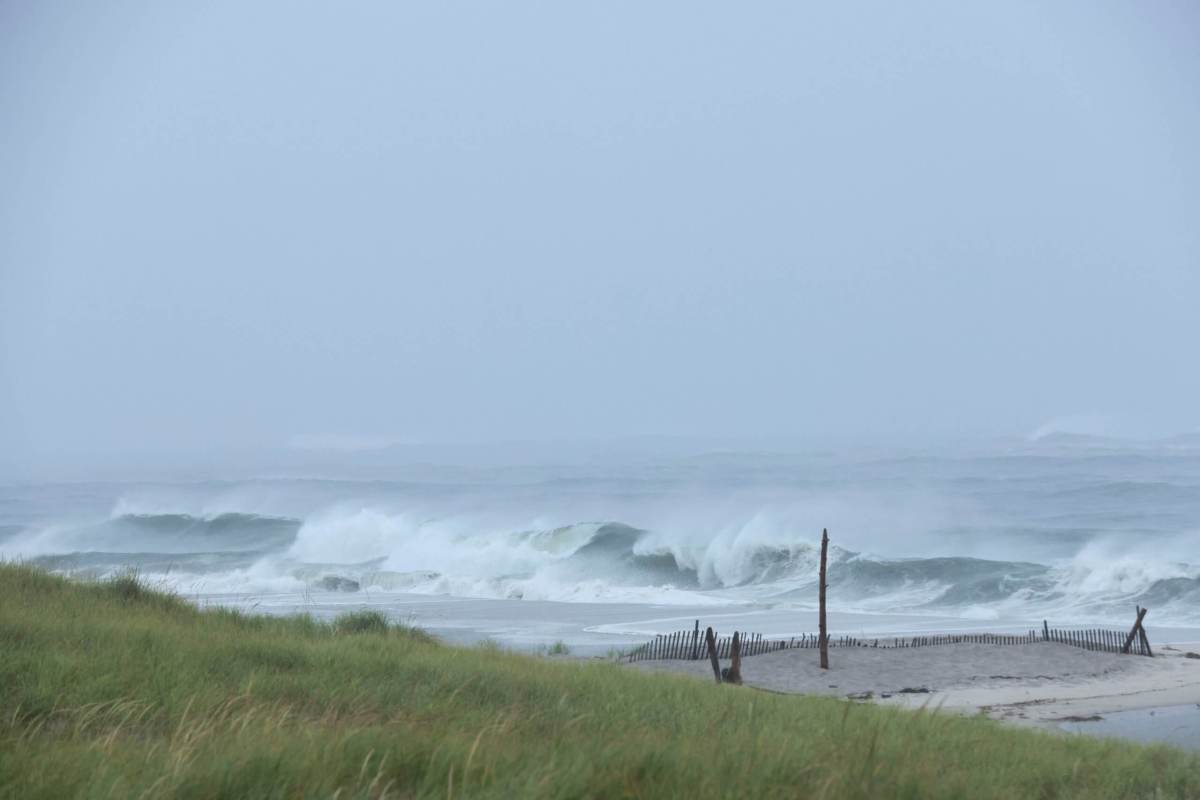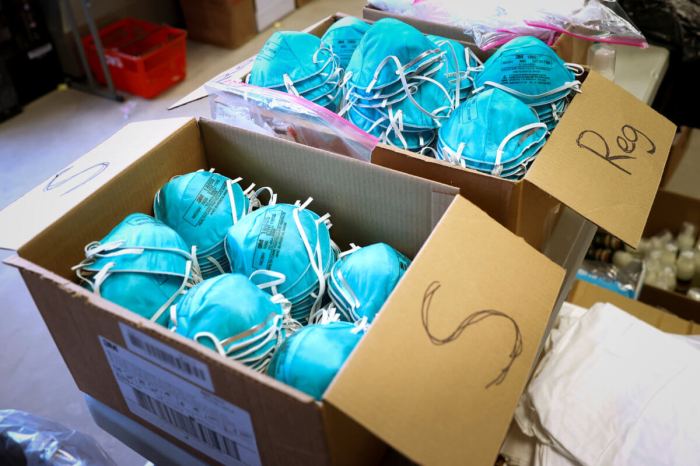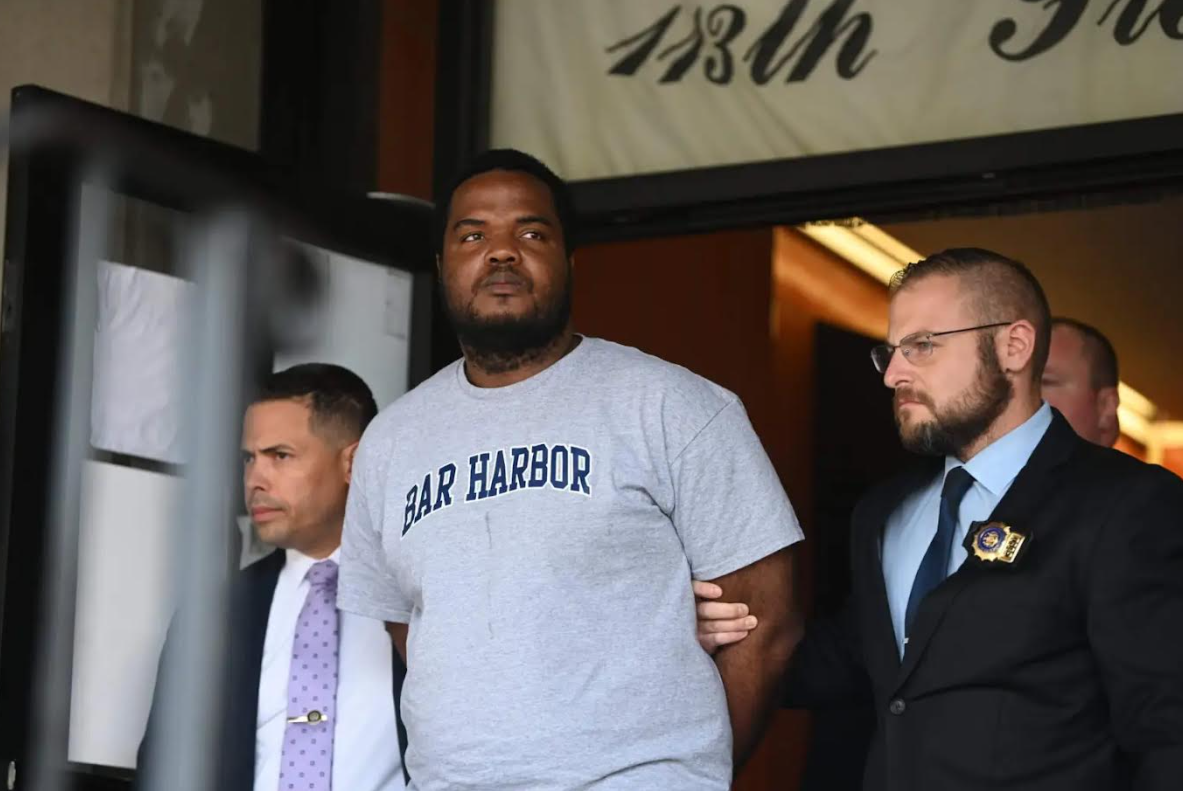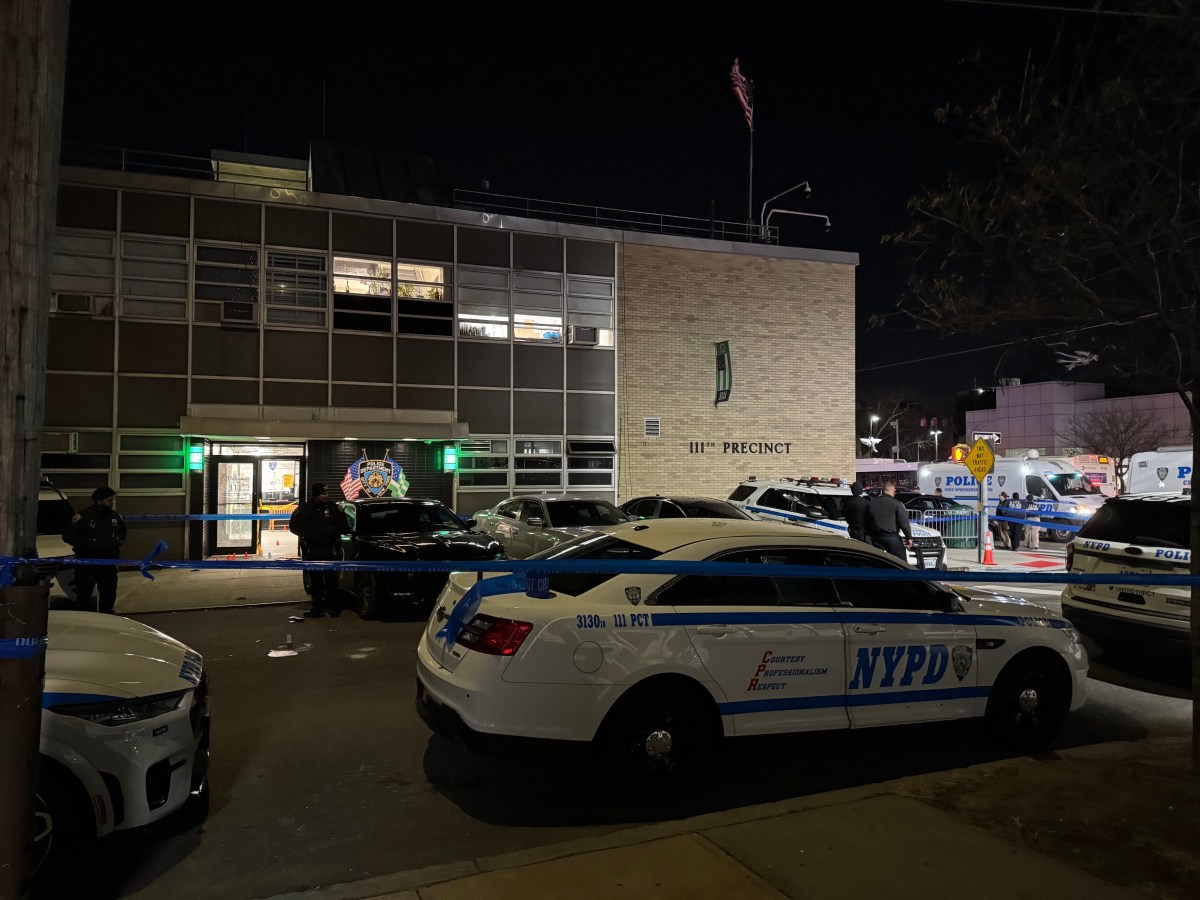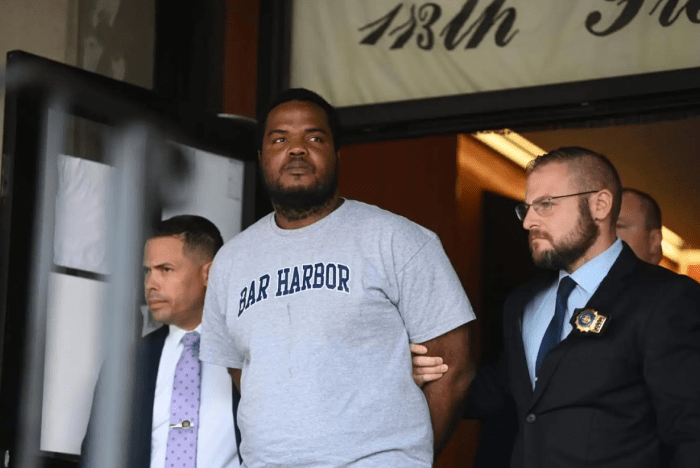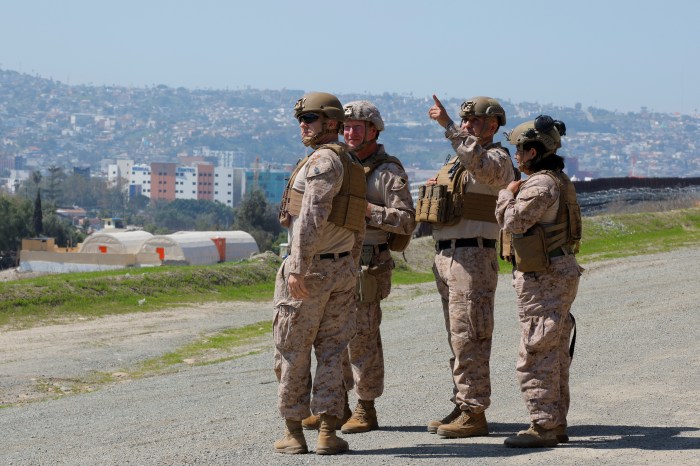After pelting New York City Saturday night with heavy rain from its feeder bands, Tropical Storm Henri — which lost its hurricane status early Sunday morning — drenched much of New York City and Long Island.
At around 12:35 p.m. Aug. 22, the center of Henri’s circulation made landfall at Westerly, Rhode Island, with top winds of 60 mph; it continued to weaken over Rhode Island and Connecticut throughout the day. Eastern Long Island, which had been projected to bear Henri’s brunt, was spared the worst of the storm.
For New York City, Henri was a major rainmaker. Heavy bands of rain moved in from the east and are expected to continue through much of the day Sunday as the storm system moves ashore and begins crawling over Connecticut.
The National Weather Service cancelled its tropical storm and storm surge warnings for New York City. Rip currents remained along other parts of the city’s coast; all New York City beaches were closed Sunday due to the storm.
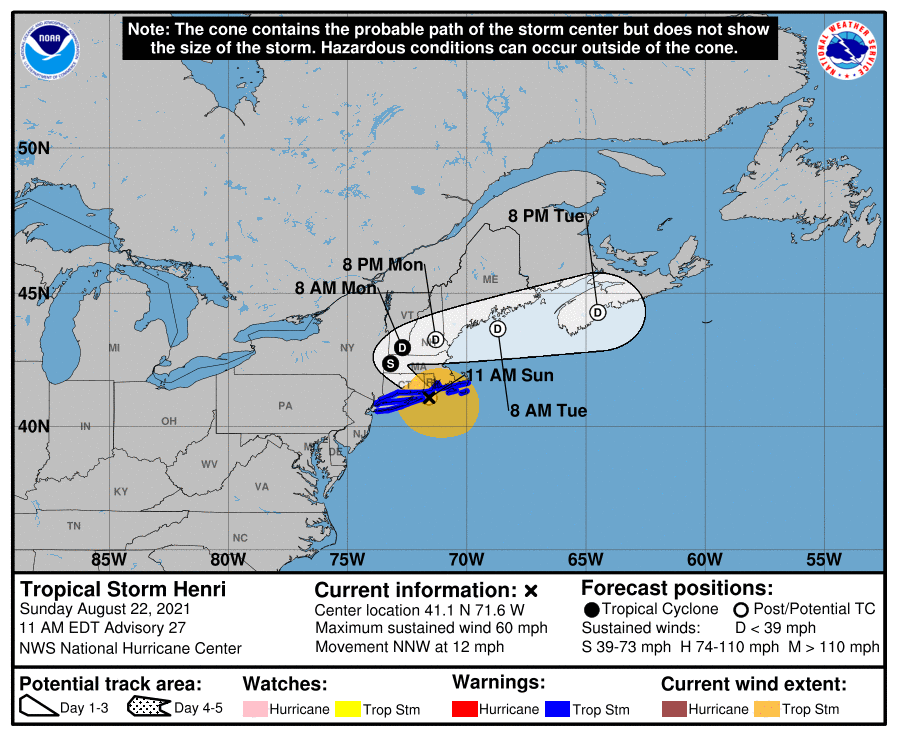
On Saturday night, Henri brought record-setting rainfall to the Five Boroughs, with parts of Manhattan, Brooklyn and Staten Island getting particularly drenched. Central Park recorded 4.45 inches of rainfall as of 1 a.m. Aug. 22, with 1.69 inches of rain coming between 10 and 11 p.m. on Aug. 21 — an all-time record for a single hour of rainfall.
The heavy rain and lightning from Henri’s feeder bands forced the confusing cancellation of the We Love NYC concert on Central Park’s Great Lawn.
During a briefing Sunday morning, outgoing Governor Andrew Cuomo reported that 2 1/2 inches of additional rain was expected in the New York City area. Much higher rainfall amounts, up to 5 inches or more, were expected north of the city in Westchester County and the Hudson Valley as Henri churned through New England Sunday into Monday.
“That is a significant amount of rainfall and it should be taken seriously,” Cuomo said, comparing the situation to one the northern suburbs faced a decade ago from Tropical Storms Irene and Lee. “You have hills, you have creeks, the water comes running down those hills, hits what was a creek and turns it into a ravaging river.”
Mayor Bill de Blasio prognosticated between 2 and 4 additional inches of rain across the Five Boroughs. He urged New Yorkers to stay home Sunday, if possible, and to use public transit if they must travel.
With #Henri downgraded to tropical storm status, here’s what you need to know:
-2 to 4 inches of additional rainfall is expected in NYC.
– If you can stay home today, please stay inside. If you must travel, use public transportation.
— Mayor Eric Adams (@NYCMayor) August 22, 2021
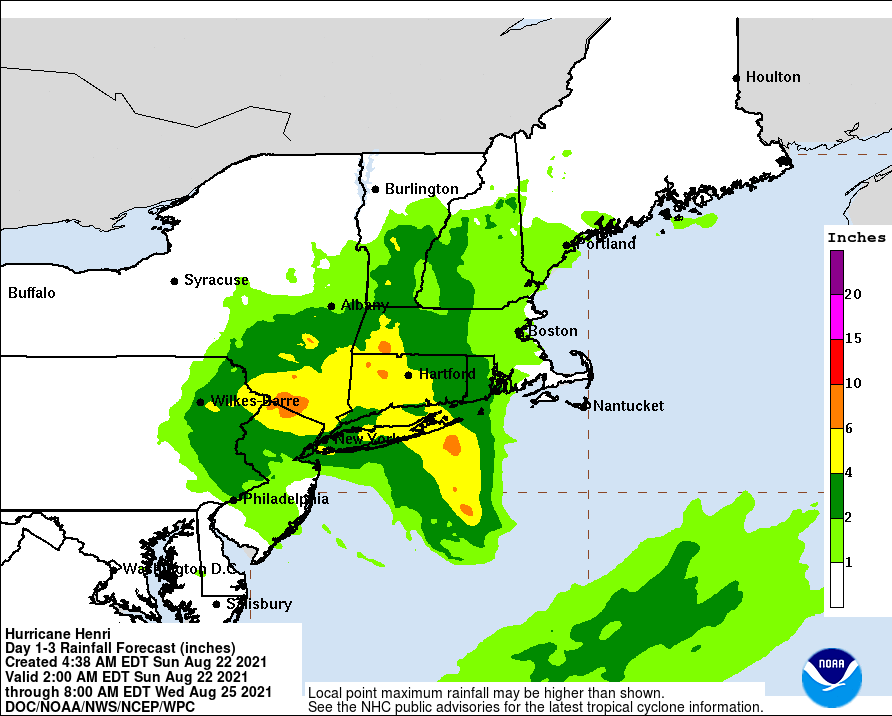
In advance of the storm, de Blasio and outgoing Cuomo declared states of emergency, mobilizing resources to prepare for the advancing system. On Sunday, President Joe Biden approved the disaster declaration request Cuomo sent on Sunday, mobilizing the Federal Emergency Management Administration (FEMA) to coordinate a response to the storm and reimburse the state for 75% of all preparation costs.
Cuomo said the state has mobilized 500 National Guard members and 1,000 state police officers to respond to storm-related emergencies. More than 500 pieces of rescue equipment have also been moved downstate from Buffalo.
The MTA cancelled Long Island Rail Road service to the east end of Long Island, which is expected to bear the brunt of Henri.
“On Sunday, Aug. 22, passenger train service will not resume until we have checked our infrastructure and determined that it is safe to do so,” the MTA reported.
Dozens of flights to and from New York City airports were delayed and/or cancelled due to the storm. Check with your airline carrier before heading out to the airport.



